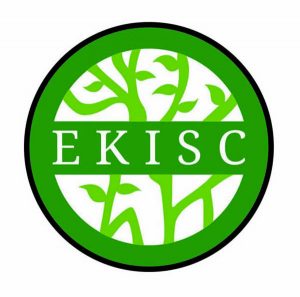Home »

Be PlantWise this garden season
 Submitted by The East Kootenay Invasive Species Council
Submitted by The East Kootenay Invasive Species Council
As we head into the summer months, many of us will be eager to spend more time outside in our gardens, tending to our plants and flowers. While it’s tempting to choose the most attractive and colourful plants, it’s important to be mindful of the impact that our choices can have on the environment.
Invasive species, in particular, can wreak havoc on local ecosystems, crowding out native plants and disrupting the delicate balance of the natural world when they escape from our gardens. That’s why it’s crucial to be PlantWise this summer and avoid planting invasive species in your garden.
What are invasive species? Invasive species are non-native plants, animals, or microorganisms that are introduced to a new environment and then thrive at the expense of native species. They often have no natural predators in their new home and can quickly take over an ecosystem, crowding out other plants and animals and disrupting the natural balance. Invasive species can be introduced accidentally, such as through the transport of goods or as stowaways on ships, or intentionally, such as when people bring non-native plants into their gardens.
Why are invasive species a problem? Invasive species can have a range of negative impacts on the environment, economy, and human health. They can reduce biodiversity, alter ecosystem function, and cause the extinction of native species.
They can also increase the risk of wildfires, clog waterways, and damage infrastructure. Invasive species can have economic impacts as well, affecting agriculture, forestry, and tourism industries. In some cases, invasive species can even be harmful to human health, causing allergies, asthma, or other respiratory problems.
How can we be PlantWise this summer? Being PlantWise means making responsible choices when it comes to planting in your garden.
Here are some tips for avoiding invasive species:
Choose native plants: Native plants are adapted to the local environment and provide important habitat for native wildlife. They are also less likely to become invasive and can help support the local ecosystem.
Check the invasive species list: Before choosing a new plant for your garden, check to see if it’s on the invasive species list. Many governments and environmental organizations maintain lists of invasive species in their region, so it’s easy to find out if a plant is a potential problem. For the East Kootenay region, check out https://www.ekisc.com/.
Be careful when it comes to ‘wildflower’ seed mixes: These mixes are usually created with a broad audience in mind, not considering what is invasive from region to region. If you see a wildflower mix with one of these species in it, say no! And tell someone at the store!
Baby’s Breath
Bachelors Button / Cornflower
Blueweed
Butterfly Bush
Common Comfrey
Common Periwinkle
Dames Rocket
Flowering Rush
Foxglove
Himalayan Balsam
Knotweeds
Leafy + Cypress + Myrtle Spurge
Mountain Bluet
Oxeye Daisy
Purple Loosestrife
Queen Annes Lace
Tamarisk
Yellow Flagged Iris
Yellow + Dalmatian Toadflax
Dispose of invasive species properly: If you do find an invasive species in your garden, don’t just pull it up and throw it away. Invasive species can spread easily, so it’s important to dispose of them properly. Contact your local government or environmental organization for guidance on how to dispose of invasive species safely. EKISC suggests that all invasive species go in a garbage bag and be taken to a RDEK transfer station. Don’t burn, compost or dump!
Spread the word: Encourage your friends and neighbours to be PlantWise as well. By spreading the word and raising awareness about the importance of avoiding invasive species, we can all work together to protect our environment.
In conclusion, being PlantWise this summer means being mindful of the impact that our choices can have on the environment. By avoiding invasive species in our gardens and choosing native plants instead, we can help support local ecosystems and protect biodiversity for generations to come. If you are curious about being PlantWise this season, reach out to us at [email protected] to get your hands on a Grow Me Instead Guide, native seeds or an ID workshop.
 The East Kootenay Invasive Species Council is a non-profit organization that builds partnerships and supports collaborative projects in natural and applied science, policy research, outreach and education to protect our forests, fields, gardens, waterways and cities from the damaging effects of invasive species. www.ekisc.com
The East Kootenay Invasive Species Council is a non-profit organization that builds partnerships and supports collaborative projects in natural and applied science, policy research, outreach and education to protect our forests, fields, gardens, waterways and cities from the damaging effects of invasive species. www.ekisc.com
Images submitted







